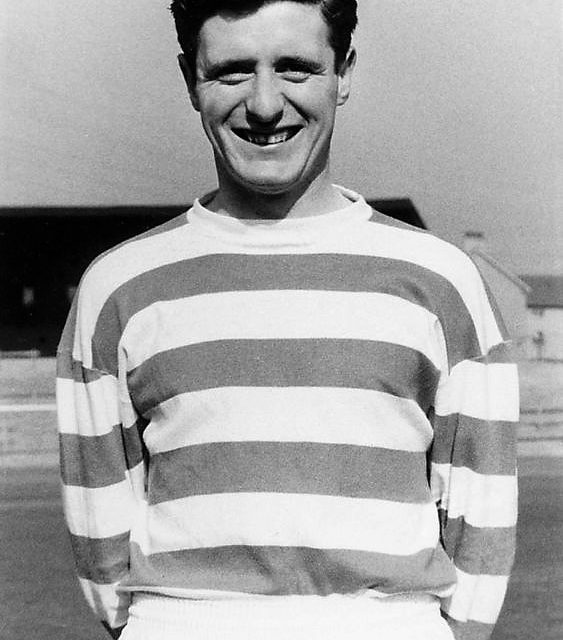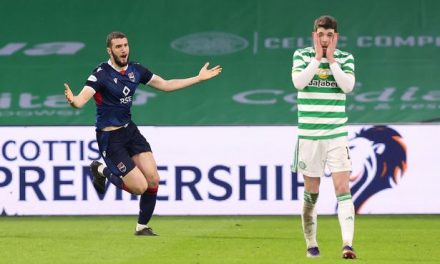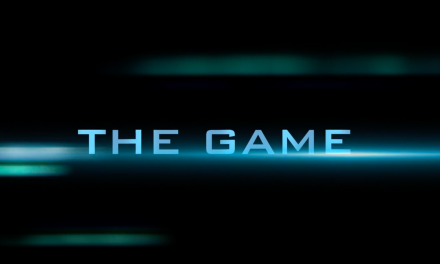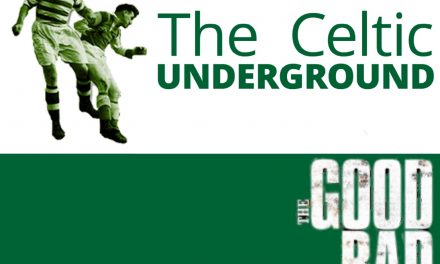It was with great sadness that Celtic fans learned today of the passing of Celtic legend, Charlie Gallagher. Charlie represented Celtic for 11 years between 1959 and 1970 and was an important figure during the early days of Jock Stein’s managerial reign which led to such enormous success in the mid to late 1960’s. Although Charlie was to enjoy the glory days, it should always be recalled that success did not come easily. He, like many of his contemporaries such as Bobby Murdoch, Bobby Lennox and Jimmy Johnstone, had to endure a particularly miserable time and suffer a lot of setbacks before Scottish football was turned on its axis by Stein’s arrival as Celtic’s new manager in March 1965.
Charlie will always be recalled in Celtic’s history for three particular reasons. Firstly, he floated a perfect corner on to the head of Billy McNeill for the winning goal in the 1965 Scottish Cup final against Dunfermline in front of a packed Hampden crowd, a goal which changed Celtic’s fortunes in every respect. Secondly, there was another pinpoint corner, on to McNeill’s head once again, against Vojvodina in the 1967 European Cup tie, for the most dramatic ending to a game ever played at Celtic Park. Without that last gasp winning goal then Lisbon may not have been possible. Lastly, Charlie was hugely influential in the run in to the league title in 1968 when he was given a long run in the team following an injury to Bertie Auld, and he responded with some great displays as Celtic embarked on a long unbeaten run to pip Rangers to the title.
An old fashioned inside forward who was converted to a midfield man, Charlie was a wonderful striker of the ball with both his right and left foot. There were two particular instances of this, the first in the 1965 Scottish Cup final against Dunfermline when he crashed a shot against the crossbar from 30 yards which resulted in a goal for Bertie Auld. The second example was in January 1966 when Charlie scored with a glorious shot on a misty January day at Parkhead when Celtic beat Rangers 5-1 in a game which would long stay in the memory.
In his last few seasons he experienced a difficult relationship with Jock Stein, as a number of his colleagues, the players from the Lisbon era, have testified in later years. He was used more sparingly and was an enormous help to the wonderful Celtic reserve players of that period, collectively referred to as the Quality Street Gang. In one of his last Celtic appearances, in 1968, he was replaced against Hamilton in a League Cup tie by a very youthful Kenny Dalglish as competition for places in the Celtic first team intensified.
Stein became angered by Charlie’s refusal to move from Parkhead. In 1969 Stein sent Charlie to Manchester on the train to meet a representative of a Lancashire club who were interested in signing him. In later years Charlie could not recall whether it was Bury, Blackburn or Oldham, but their representative to meet him at Manchester Piccadilly did not show, leaving Charlie to report to a frustrated Stein, happy in the knowledge he didn’t have to leave his beloved Celtic and uproot his young family. He eventually moved to Dumbarton in 1970 and enjoyed an Indian summer as The Sons of the rock were promoted to Scottish football’s top flight and he had several good games against Celtic where the Parkhead crowd were always guaranteed to give him a fine reception.
Charlie was proud to become the first Scottish born player to represent the Republic of Ireland under the parentage rule in 1968. As someone who was immensely proud of his Irish heritage, this was a great honour but he commented in later years that there was a clique of London based Ireland players who were not very welcoming to new faces.
I was privileged to do a podcast with Charlie in his Bishopbriggs home a few years ago. He told me that it used to frustrate him that people generally remembered him for those two great corner kicks from which Billy McNeill scored such memorable goals. However, in later years, he grew to be proud of his contribution to Celtic’s history from those two corners. They were small but hugely important factors which shaped Celtic’s history enormously. That podcast will now be online for posterity and I hope that the Gallagher family will look back on that wee interview as a source of pride in the years to come.
In his later years, Charlie Gallagher could always be seen before Celtic home games, standing outside the ground, resplendent in his Lisbon Lions blazer, happy to stand and talk to fans, old and young, about his career and share his memories. Although he did not play in Lisbon he was an influential player in the earlier rounds leading to the final and he played a huge part in the overall success which Jock Stein’s Celtic enjoyed during the glory years between 1965 and 1970. For that reason, he will always be fondly remembered.
Charlie Gallagher was a Celt to his very core. May God rest him and may he rest in peace.




